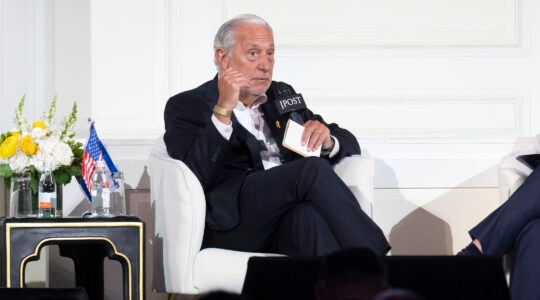A year ago, in early March, one of the country’s largest Jewish foundations — the Jim Joseph Foundation, worth about $800 million — tried to inspire other mega donors to step forward with emergency funding by making available $11 million in matching grants for an emergency gift to help five communities deal with the high cost of Jewish education.
Foundation officials saw the grants as a challenge to other funders, trying to inspire those interested in Jewish education and day schools to help prop up the field. At last year’s Jewsih Funders Network Conference in St. Petersberg, Fla., a couple of weeks after the announcement of the emergency matching grants, several high-ups at Jim Joseph privately expressed concern that others had not stepped up to their challenge.
A year later, Jim Joseph’s executive director, Chip Edelsberg, says the foundation only saw a "modest response" to its laying-down of the philanthropic gauntlet.
"I think that I can say that the foundation was disappointed. I wouldn’t be embarassed by that word," he said, implying that those with major money simply sat, and continue to sit, on their available funds.
"There is a bundle of money out there sitting on the sidelines. I am respectful, but dissappointed," Edelsberg said. "The market just had the best first quarter it has had in 10 years, there are signs of recovery and there has been a recuperation of funds. It is an empirical fact. And the conventional wisdom is that foundations might have recovered a significant portion of what they lost."
Organizations are suffering, he said, noting that a Jewish day school in Memphis closed last week and, just recently, the Jewish Federation of the SIlicon Valley had to collateralize a $1.2 million loan to keep open another day school.
JTA has documented Jewish history in real-time for over a century. Keep our journalism strong by joining us in supporting independent, award-winning reporting.





